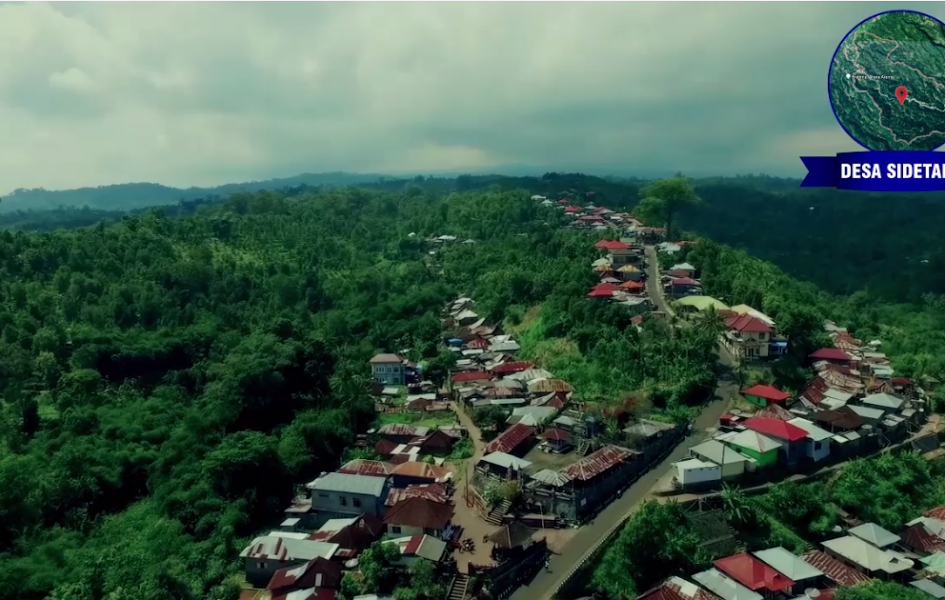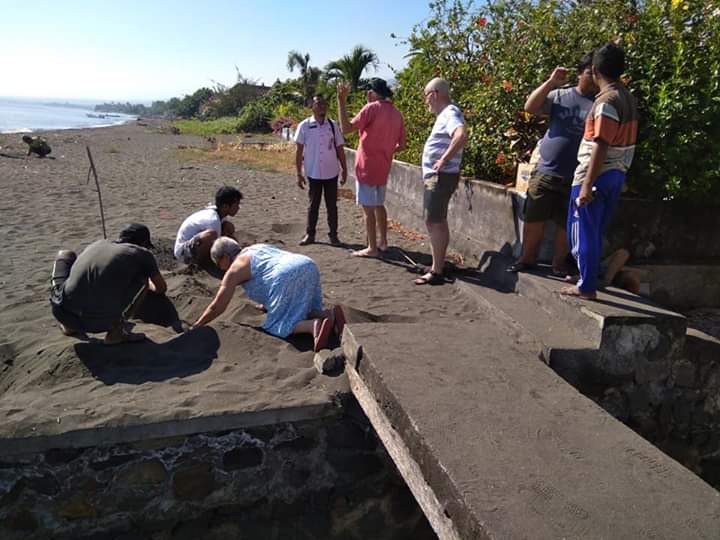
Bali, a tropical paradise known for its stunning landscapes, vibrant culture, and warm hospitality, continues to captivate travelers from around the world. With its unique blend of tradition and modernity, Bali is a destination that constantly evolves while cherishing its rich heritage. In this article, we will explore the latest news and developments in Bali, highlighting how the island is embracing change while preserving its cultural roots.
Sustainable Tourism Initiatives
Bali has long been a popular tourist destination, attracting millions of visitors each year. However, the rapid growth of tourism has raised concerns about its impact on the environment and local communities. In response, Bali has taken significant steps towards sustainable tourism. The local government, along with various organizations and businesses, has implemented initiatives to promote eco-friendly practices, such as waste management programs, coral reef protection, and the use of renewable energy sources. These efforts aim to ensure that Bali's natural beauty and cultural heritage are preserved for future generations.
Digital Transformation
In recent years, Bali has embraced digital transformation, leveraging technology to enhance the visitor experience and support local businesses. The island has witnessed the emergence of innovative startups and digital platforms catering to tourists' needs, including online booking services, transportation apps, and immersive travel experiences. Additionally, the local government has introduced digital solutions for managing tourism, such as smart tourism systems, e-ticketing for attractions, and digital marketing campaigns. This digital revolution has not only improved convenience for visitors but also created new opportunities for the local economy.
Balinese Culture and Festivals
Despite the modernization and influx of tourists, Bali remains deeply rooted in its cultural heritage. The island is renowned for its vibrant festivals and religious ceremonies that reflect the Balinese way of life. Visitors can witness captivating processions, traditional dances, and intricate offerings during festivals like Galungan, Nyepi (the Day of Silence), and the Ubud Writers & Readers Festival. These events provide a glimpse into the spiritual and artistic traditions that have been passed down through generations. Bali's commitment to preserving and showcasing its cultural identity continues to attract travelers seeking an authentic and immersive experience.
Wellness and Mindfulness
Bali has become a global hub for wellness and mindfulness practices, attracting individuals seeking relaxation, rejuvenation, and personal growth. The island offers a wide range of yoga retreats, meditation centers, and wellness resorts that provide a serene environment for self-reflection and self-care. Bali's natural beauty, lush landscapes, and tranquil beaches create an ideal setting for mindfulness activities. Additionally, the island's diverse wellness offerings, including holistic healing therapies, spa treatments, and healthy cuisine, have contributed to its reputation as a wellness destination.
COVID-19 Response and Recovery
Like the rest of the world, Bali faced significant challenges due to the COVID-19 pandemic. The island's economy heavily relies on tourism, and the travel restrictions greatly impacted the local community. However, Bali has shown resilience and adaptability throughout the crisis. The government and tourism stakeholders have implemented strict health protocols to ensure the safety of visitors and residents. As vaccination efforts have progressed, the island has gradually reopened to international tourists, with a focus on responsible and sustainable tourism practices. Bali's resilience and determination to recover highlight its commitment to the well-being of its people and the restoration of its vibrant tourism industry.
Bali continues to capture the hearts of travelers worldwide with its enchanting beauty, cultural heritage, and commitment to sustainability. Through sustainable tourism initiatives, digital transformation, cultural preservation, wellness offerings, and its response to the COVID-19 crisis, Bali demonstrates its ability to adapt to change while staying true to its roots. As the island embraces the future, it remains a haven where modernity and tradition
exist harmoniously, inviting visitors to experience the best of both worlds.
Looking ahead, Bali's commitment to sustainable tourism will play a crucial role in shaping its future. The island aims to strike a balance between economic growth and environmental preservation, ensuring that the local community benefits from tourism while safeguarding its natural resources. Ongoing efforts to reduce plastic waste, promote responsible tourism practices, and support local artisans and farmers contribute to the island's sustainable development goals.
Furthermore, Bali's digital transformation is set to continue, enhancing the visitor experience and providing new opportunities for businesses. As technology advances, we can expect to see further integration of digital platforms, smart city initiatives, and immersive technologies that enrich the overall tourism landscape.
Despite the challenges faced during the pandemic, Bali's resilience and determination to recover have demonstrated its unwavering spirit. The island's commitment to the well-being of its residents, as well as the preservation of its cultural heritage, ensures that Bali will continue to captivate visitors with its unique blend of tradition, beauty, and warmth.
As travelers return to Bali and explore its diverse offerings, they can immerse themselves in the island's vibrant festivals, indulge in wellness practices, discover hidden gems, and create lasting memories. Whether it's the tranquil beaches of Nusa Dua, the vibrant streets of Ubud, or the spiritual aura of Uluwatu, Bali beckons adventurers seeking an authentic, transformative experience.
In conclusion, Bali remains a destination that embraces change while preserving its rich cultural traditions. With its sustainable tourism initiatives, digital transformation, commitment to cultural heritage, wellness offerings, and resilient recovery from the pandemic, Bali stands as a testament to the island's ability to evolve while remaining true to its roots. As travelers embark on their Bali journeys, they can expect to be captivated by the island's beauty, charm, and the warm embrace of its people. Bali truly is a place where tradition and innovation coexist, creating an unforgettable experience for all who visit
Continuing on, Bali's unique charm lies not only in its natural landscapes and cultural heritage but also in the warmth and hospitality of its people. The Balinese locals are known for their genuine kindness and welcoming nature, making visitors feel at home and fostering a sense of connection.
The island's commitment to preserving its cultural traditions is evident in various aspects of Balinese life. From the intricately designed temples that dot the landscape to the traditional arts and crafts passed down through generations, Bali's cultural heritage remains an integral part of its identity. Visitors have the opportunity to witness traditional ceremonies, such as weddings and temple rituals, and engage with local communities to gain a deeper understanding of Balinese customs and beliefs.
Bali's vibrant arts scene continues to thrive, with artists and craftsmen creating intricate wood carvings, paintings, and textiles that reflect the island's rich cultural tapestry. Ubud, the artistic heart of Bali, is home to numerous art galleries, studios, and cultural centers where visitors can appreciate and even purchase unique pieces of Balinese art.
The culinary landscape of Bali is another aspect that continues to evolve while staying rooted in tradition. Balinese cuisine is a delightful fusion of local ingredients, traditional cooking methods, and diverse influences from neighboring countries. From the iconic Babi Guling (roast suckling pig) to the fragrant and spicy Nasi Campur (mixed rice), Bali offers a culinary journey that tantalizes the taste buds. Food enthusiasts can explore bustling markets, street food stalls, and upscale restaurants to savor the flavors of the island.
In recent years, Bali has also gained recognition as a hub for sustainability and eco-conscious living. Many resorts and accommodations have adopted eco-friendly practices, such as utilizing renewable energy, reducing waste, and supporting local communities. Visitors can choose from a range of eco-friendly accommodations that allow them to enjoy the beauty of Bali while minimizing their ecological footprint.
Moreover, Bali's natural landscapes continue to inspire awe. From the iconic rice terraces of Tegalalang to the majestic Mount Batur and the pristine beaches of Uluwatu, the island offers a diverse range of breathtaking scenery. Outdoor enthusiasts can engage in activities like hiking, surfing, snorkeling, and exploring the hidden waterfalls and jungles that dot the island's interior.
In conclusion, Bali remains a destination that captivates travelers with its ability to embrace change while preserving its cultural heritage. The island's commitment to sustainable tourism, its thriving arts scene, culinary delights, warm hospitality, and stunning natural landscapes make it an enticing and ever-evolving destination. Whether you seek relaxation, adventure, spiritual enrichment, or cultural immersion, Bali offers a unique and unforgettable experience that seamlessly blends tradition and modernity.



